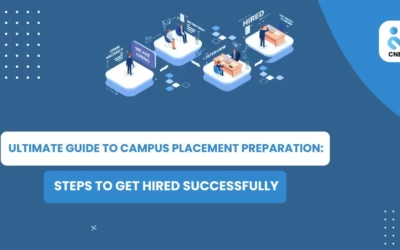6 Reasons Your Resume Isn’t Getting Shortlisted
Struggling to land interviews? Discover the 6 most common reasons your resume isn’t getting shortlisted—and learn how to fix them with actionable resume tips that will boost your job search success.

Introduction: Why Isn’t Your Resume Getting Noticed?
You’ve applied to dozens of jobs but still haven’t received a callback. Sound familiar? You’re not alone. Many qualified candidates get passed over simply because of small resume mistakes or poor application strategies.
In this blog, we’ll uncover the top reasons your resume isn’t getting shortlisted and provide practical tips to improve your chances of getting hired.
1. You’re Using a Generic Resume and Cover Letter
Why It Hurts Your Job Search
Recruiters can instantly tell when you’re using a one-size-fits-all resume. Generic applications often fail to highlight the specific qualifications that align with the job role.
How to Fix It
-
Customize your resume and cover letter for every job.
-
Highlight keywords, skills, and experiences that match the job description.
-
Create different resume versions for different roles (e.g., marketing vs. editing).
2. Your Resume Lacks Keywords
Why Keywords Matter
Most companies use an Applicant Tracking System (ATS) to screen resumes. If your resume doesn’t include the right keywords, it might never reach a human recruiter.
How to Fix It
-
Use industry-specific and job-relevant keywords.
-
Carefully read the job description and match key phrases.
-
Incorporate keywords naturally in your skills, experience, and summary sections.
3. You’re Applying for the Wrong Jobs
Understanding the Misalignment
Applying for roles that don’t match your qualifications—whether you’re underqualified or overqualified—can lead to automatic rejections.
How to Fix It
-
Apply for roles that match your skills, experience, and education.
-
Avoid applying to jobs that clearly list requirements you don’t meet yet.
-
Focus on roles that offer growth and are appropriate for your career level.
4. You’re Targeting Only Highly Competitive Roles
The Risk of Being Too Selective
While it’s great to aim high, applying only to top-tier or highly competitive jobs limits your chances of success.
How to Fix It
-
Apply to a mix of roles—some ambitious and some attainable.
-
Consider smaller companies or startups where competition might be less intense.
-
Use early roles to build your resume and gain industry experience.

5. Your Resume Doesn’t Stand Out
Why Being Average Doesn’t Cut It
If your resume looks like every other applicant’s, it will likely be skipped over.
How to Fix It
-
Highlight unique accomplishments and measurable results.
-
Use the STAR method (Situation, Task, Action, Result) in your bullet points.
-
Show off your personality and soft skills during interviews.
6. You’re Being Too Personal or Overeager
Where Enthusiasm Crosses the Line
Following up is good. But overdoing it—or trying to connect with recruiters on personal platforms—can come off as unprofessional.
How to Fix It
-
Send one polite follow-up email after the interview.
-
Avoid adding hiring managers on personal social media like Facebook or Instagram.
-
Keep communication professional and concise.
Conclusion: Boost Your Resume, Boost Your Chances
Job searching is tough, but a strategic approach can make all the difference. By fixing these six resume mistakes—like using generic content, skipping keywords, or applying to mismatched roles—you can significantly improve your chances of getting shortlisted.
Here’s What You Can Do Today:
-
Tailor every resume and cover letter.
-
Use relevant keywords to beat the ATS.
-
Apply strategically to the right roles.
-
Highlight your value with clarity and confidence.



0 Comments